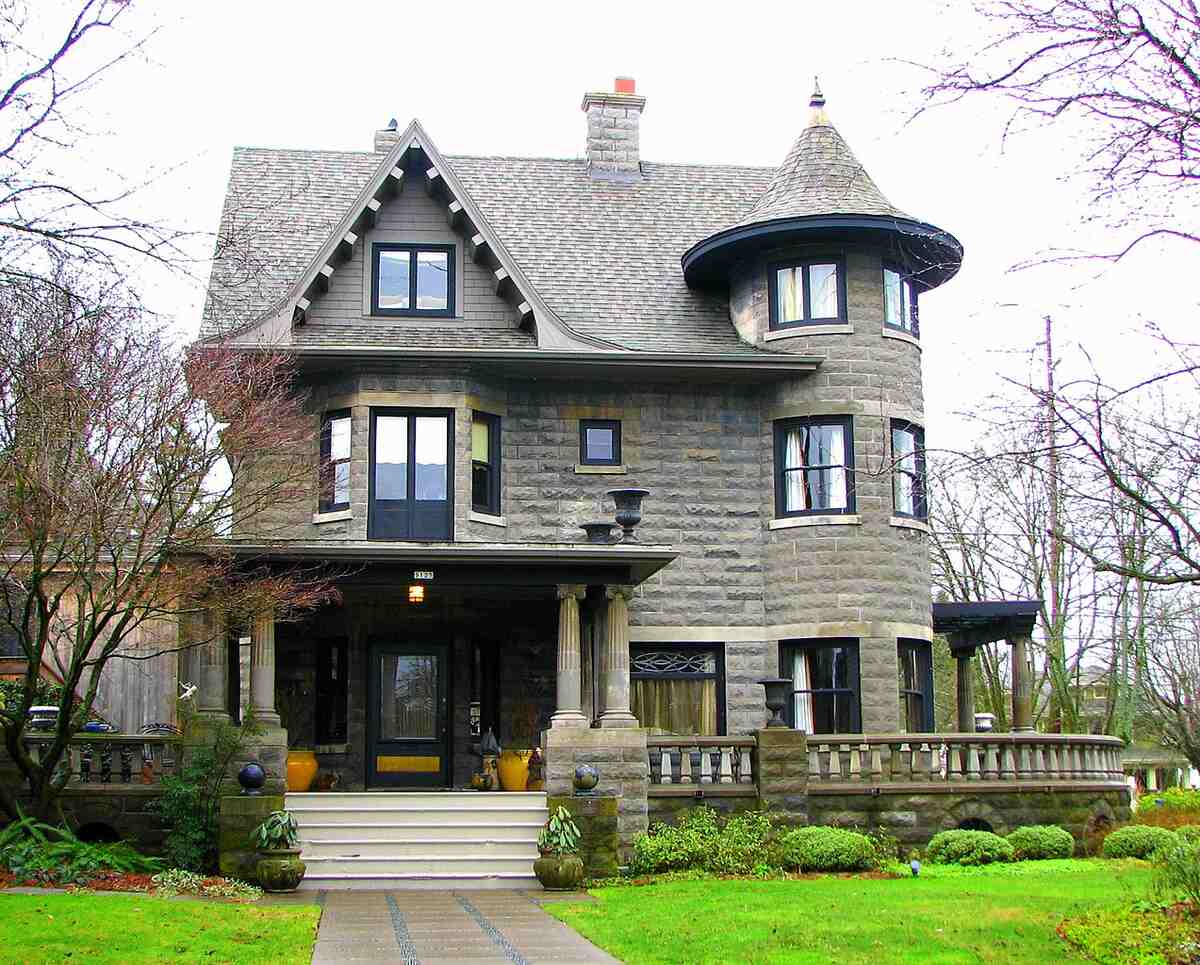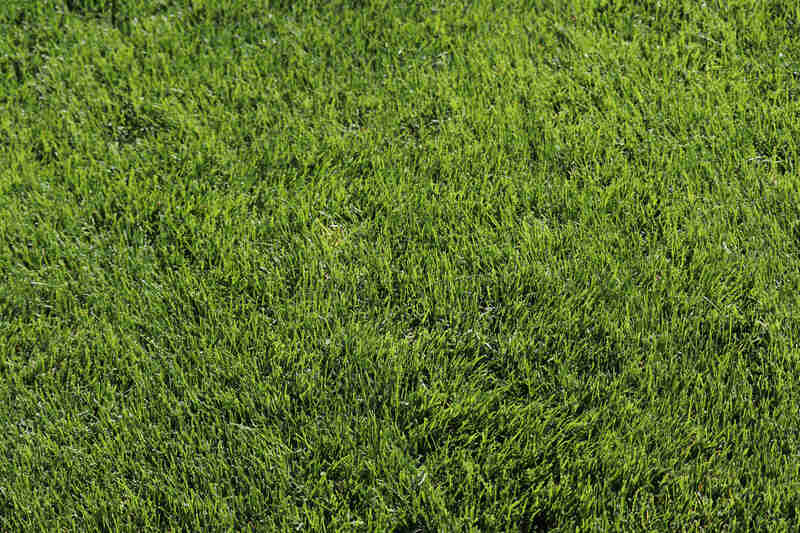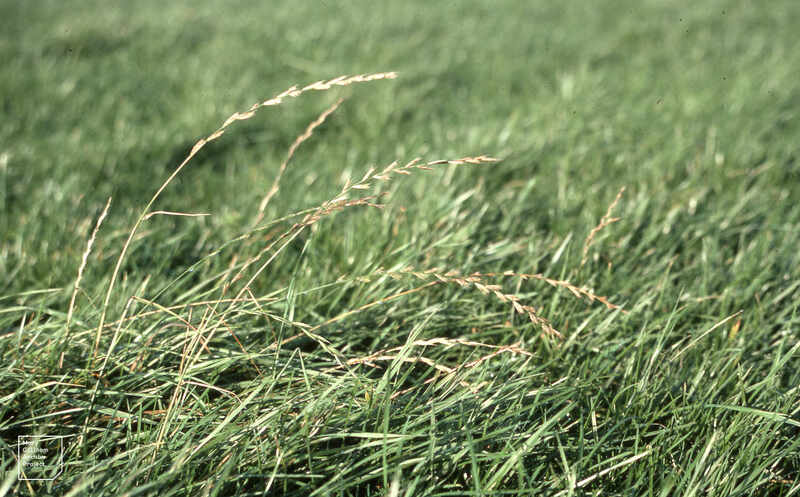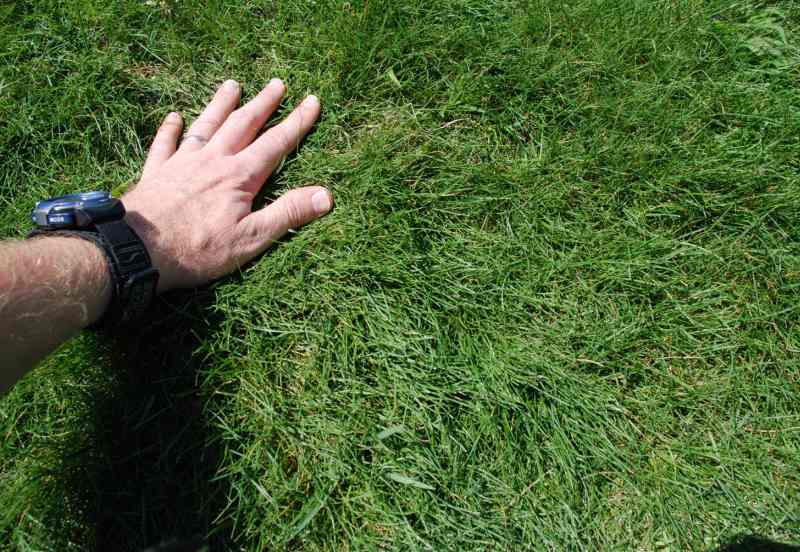
There are certain types of grass which grow best in Portland, Oregon. Growing the right grass for your climate is vital to keeping your lawn healthy and looking good. The grasses most commonly planted in Portland are mixtures of Kentucky bluegrass, perennial ryegrass, and fine fescue.
Each one of these grasses provides your lawn with a different benefit.
- Kentucky bluegrass will stabilize the soil and help it to recover from heavy traffic.
- Perennial ryegrass grows rapidly and is established quickly.
- Fine fescue is adaptable to partial shade and does well in drought conditions.
1. Kentucky Bluegrass

Photo Credit: Shutterstock
Kentucky bluegrass is a cool season grass, perfect for weathering our chilly winter weather. Found in yards all over the East Coast, Kentucky bluegrass can also be grown in the West if irrigated properly, growing to about 20-24 inches tall at maturity.
Kentucky bluegrass leaves are Y-shaped, and it spreads by rhizomes, which create new plants. The rhizomes grow fast and, in the spring, form a thick sod.
The best time to plant Kentucky bluegrass seed is during the fall, when the soil temperatures drop to 50-65 degrees. This is because the soil is warm enough for the seeds to grow and develop strong roots to survive through our harsh winters.
Kentucky bluegrass will need at least 2 inches of water a week. This will keep it growing green and healthy. If it rains less than this, you may have to water your lawn or irrigate. If it doesn’t get enough water in the summer, it may go dormant.
Kentucky bluegrass should be kept at a 2-inch height and mowed before it reaches 3 inches.
Grass Seed Options:
– Jonathan Green (11970) Blue Panther Kentucky Bluegrass Grass Seed (3 lbs.)
– SeedRanch Midnight Kentucky Bluegrass Seed (5 lbs.)
– Jacklin Seed – Biltmore Blue Blend – 100% Kentucky Bluegrass (5 lbs.)
2. Perennial Ryegrass

Photo Credit: Dr Mary Gillham Archive Project / Flickr / CC BY 2.0
Perennial ryegrass is a cool season grass that holds up well against foot traffic, grows easily, and maintains a lush green appearance. It’s also a perfect grass for overseeding lawns that go dormant in the winter. Plus, because it grows so rapidly, it suppresses weed growth.
Perennial ryegrass grows exceptionally well under the full sun but also can grow in partial shade. Fertile well-drained soil is ideal for this grass, though it handles wet soil better than other ryegrasses. However, it won’t tolerate extreme drought or extended periods of heat.
This grass requires moderate to high maintenance depending on the conditions in which it’s growing. This grass should be mowed when it’s between 1.5 and 2.5 inches high.
Grass Seed Options:
– Outsidepride Perennial Ryegrass Seed (5 lbs.)
– Eretz ProTurf Perennial Ryegrass Fine Lawn Seed (choose your size)
3. Fine Fescue

Aaron J. Patton, Ph.D. / Turfgrass Extension Specialist at Purdue University
This is the perennial standard turfgrass that is part of a cool season grass mixture. There are five species of fine fescue blended together and sold as a mixture.
The different species of fescue are sheep fescue, hard fescue, chewing fescue, creeping red fescue, and slender creeping red fescue. All the species will form tufts except the red creeping varieties.
The leaves are medium green to a blue-green and have fine leaves. It germinates and establishes itself quickly because it’s one of the most shade-tolerant of all the grasses. It will grow in difficult soils such as clay, sandy or rocky soil but doesn’t perform well in a high traffic area.
Also, it may go dormant if the temperature reaches 90-plus degrees. However, it will come out of dormancy when it becomes cooler. Mowing height should be between 2 to 2.5 inches.
By combining different grasses, it will ensure a green lawn throughout the growing season.
Grass Seed Options:
– Outsidepride Legacy Fine Fescue Grass Seed (5 lbs.)
– Eretz Creeping Red Fine Fescue Seed (choose your size)
– Outsidepride Creeping Red Fine Fescue Grass Seed (25 lbs.)
– Outsidepride Hard Fine Fescue Grass Seed (10 lbs.)
Read More:
— Spring Lawn Care Tips for Portland
— Summer Lawn Care Tips for Portland
— Fall Lawn Care Tips for Portland
— Best Grass Types for the Pacific Northwest
— Month-to-Month Lawn Care Calendar for the Pacific Northwest
— 12 Low-Maintenance Landscaping Ideas for Portland, Oregon
Need help caring for your lawn? Visit our Portland lawn care page to get in touch with a professional! In addition to Portland, we provide lawn care services in Northwest cities including Seattle and Spokane.
LawnStarter participates in the Amazon Services LLC Associates Program, an affiliate advertising program. LawnStarter earns revenue from products promoted in this article.
Main Image Credit: Bramhall House / Ian Poellet / Wikimedia Commons / CC BY-SA 3.0